
Tashkent: The Jewel of Central Asia
Tashkent, the capital city of Uzbekistan, is a fascinating blend of ancient heritage and modern vibrancy. As one of the oldest cities in Central Asia, Tashkent has a rich history that dates back over 2,200 years. The city's architecture reflects its diverse past, with influences from the Persian Empire, Islamic conquests, and Soviet rule. Visitors to Tashkent can explore a myriad of historical sites, such as the Khast Imam Complex, where ancient manuscripts, including the world's oldest Quran, are preserved. The bustling Chorsu Bazaar offers a glimpse into traditional Uzbek culture, with its colorful stalls selling everything from spices to textiles. Despite its deep historical roots, Tashkent is also a modern metropolis. The city boasts wide boulevards, lush parks, and contemporary buildings. The Tashkent Metro, with its ornate stations, is a must-see for any visitor. The city's vibrant nightlife and diverse culinary scene are sure to delight tourists seeking both adventure and relaxation.
Local tips in Tashkent
- Visit the Khast Imam Complex early in the morning to avoid the crowds and enjoy a peaceful experience.
- Take a ride on the Tashkent Metro to see the beautifully decorated stations, each with a unique design.
- Make sure to try traditional Uzbek dishes like plov, lagman, and somsa at local restaurants.
- Exchange some money for Uzbek som before visiting local markets, as many vendors prefer cash.
- Learn a few basic phrases in Uzbek or Russian to help with communication, especially in less touristy areas.
Neighbourhoods in Tashkent
Tashkent: The Jewel of Central Asia
Tashkent, the capital city of Uzbekistan, is a fascinating blend of ancient heritage and modern vibrancy. As one of the oldest cities in Central Asia, Tashkent has a rich history that dates back over 2,200 years. The city's architecture reflects its diverse past, with influences from the Persian Empire, Islamic conquests, and Soviet rule. Visitors to Tashkent can explore a myriad of historical sites, such as the Khast Imam Complex, where ancient manuscripts, including the world's oldest Quran, are preserved. The bustling Chorsu Bazaar offers a glimpse into traditional Uzbek culture, with its colorful stalls selling everything from spices to textiles. Despite its deep historical roots, Tashkent is also a modern metropolis. The city boasts wide boulevards, lush parks, and contemporary buildings. The Tashkent Metro, with its ornate stations, is a must-see for any visitor. The city's vibrant nightlife and diverse culinary scene are sure to delight tourists seeking both adventure and relaxation.
When is the best time to go to Tashkent?
Iconic landmarks you can’t miss
Chorsu Bazaar
Explore Chorsu Bazaar in Tashkent: a historical market square full of local flavors, vibrant culture, and unique handicrafts in Uzbekistan.
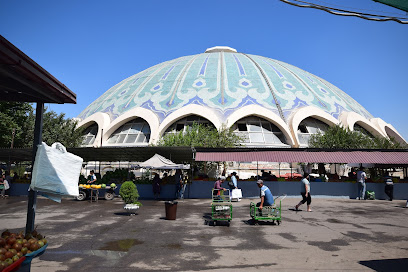
Amir Temur Square
Experience the vibrant heart of Tashkent at Amir Temur Square, a blend of history, culture, and natural beauty in Uzbekistan's capital.
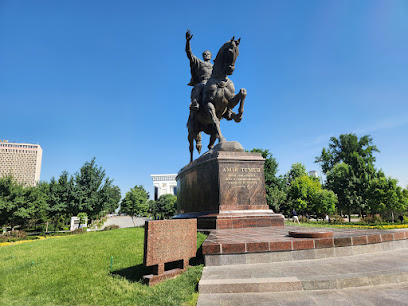
Hazrati Imam complex
Discover the architectural wonder and spiritual significance of the Hazrati Imam Complex, a must-see historical site in Tashkent, Uzbekistan.
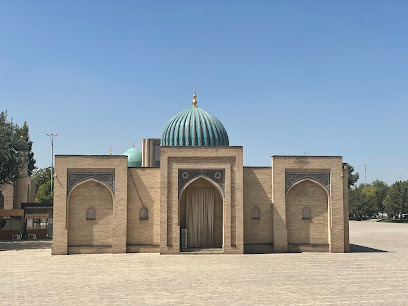
Minor Mosque
Discover the tranquil beauty and architectural splendor of the Minor Mosque in Tashkent, a serene landmark of spiritual significance in Uzbekistan.
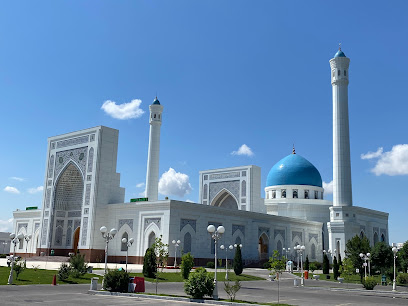
Tashkent City Park
Explore Tashkent City Park, a vibrant urban oasis filled with lush greenery, recreational activities, and cultural events in the heart of Tashkent.
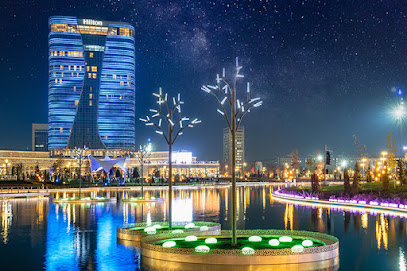
Tashkent Television Tower
Discover the breathtaking views and cultural significance of Tashkent Television Tower, the tallest structure in Central Asia, during your visit to Uzbekistan.
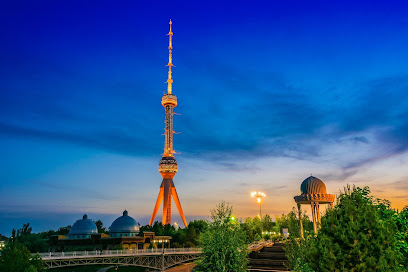
State Museum of the Temurids
Discover the fascinating history of the Temurid Empire at Tashkent's iconic State Museum, a treasure trove of cultural heritage and artifacts.

Abdulla Murodxo'jayev 17a
Explore the Abdulla Murodxo'jayev Mosque in Tashkent, a stunning example of Islamic architecture and a tranquil site for spiritual reflection.
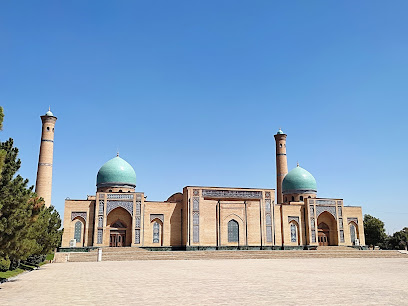
Tashkent Botanical Garden
Explore the Tashkent Botanical Garden, a lush haven of diverse flora and tranquil landscapes, perfect for nature lovers and urban explorers alike.
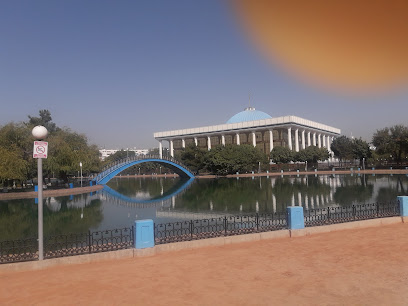
Memorial to the Victims of Repression in Tashkent
Explore the profound history of Uzbekistan at the Memorial to the Victims of Repression in Tashkent, a serene tribute to resilience and remembrance.
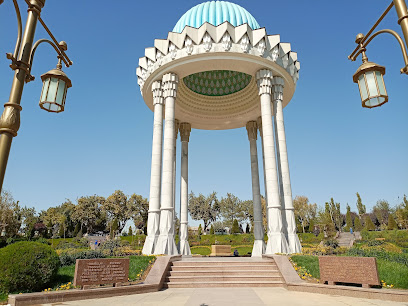
State Museum of the History of Uzbekistan
Explore the State Museum of the History of Uzbekistan and immerse yourself in the rich cultural heritage of this beautiful nation!
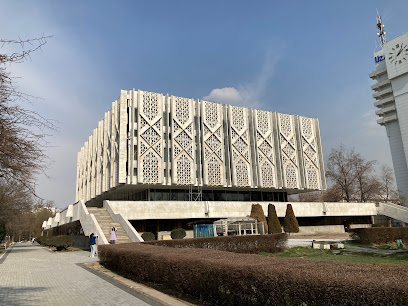
Monument of Courage
Discover the Monument of Courage in Tashkent, a historical landmark celebrating resilience and strength amidst the beauty of Uzbekistan's capital.
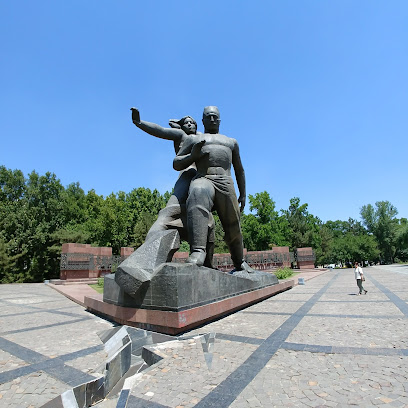
Mirzo-Yusuf Mosque
Discover the captivating beauty and cultural significance of the Mirzo-Yusuf Mosque, a must-visit tourist attraction in Tashkent, Uzbekistan.
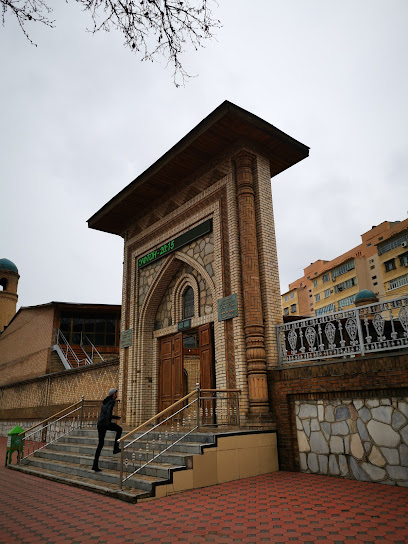
Navruz Park
Experience tranquility at Navruz Park, Tashkent's urban oasis of nature, relaxation, and vibrant cultural gatherings.
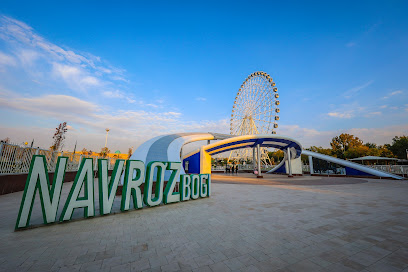
Hoja Ahror Valiy Mosque
Discover the serene beauty and rich history of Hoja Ahror Valiy Mosque, a cultural gem in Tashkent, Uzbekistan.
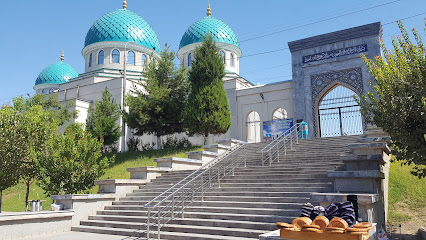
Unmissable attractions to see
Chorsu Bazaar
Discover the vibrant Chorsu Bazaar in Tashkent: A historical market square filled with local crafts, delicious food, and rich culture.
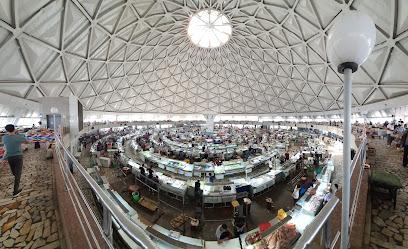
Magic City Park
Experience endless fun and excitement at Magic City Park, Tashkent's premier amusement destination for families and thrill-seekers alike.
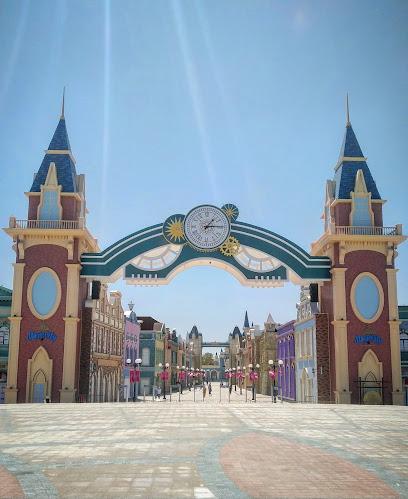
Amir Temur Square
Discover the vibrant heart of Tashkent at Amir Temur Square, where history, culture, and stunning architecture meet in a picturesque urban oasis.
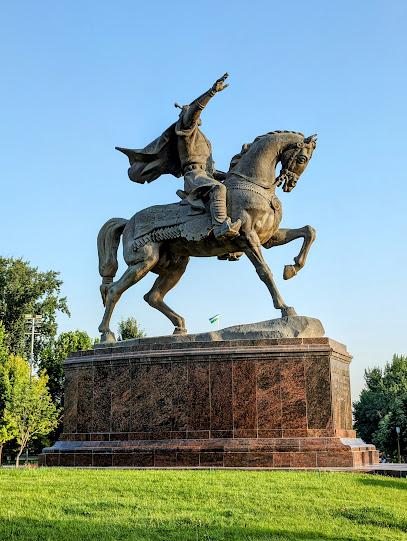
Minor Mosque
Explore the architectural beauty and spiritual tranquility of the Minor Mosque in Tashkent, a top cultural attraction for travelers in Uzbekistan.
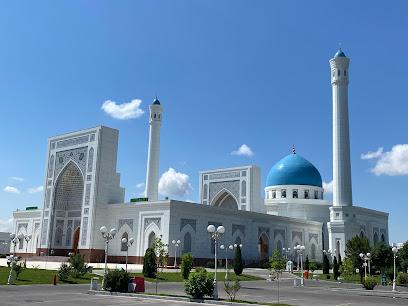
Tashkent Television Tower
Experience breathtaking views from the Tashkent Television Tower, the tallest structure in Central Asia, blending modernity with stunning scenery.
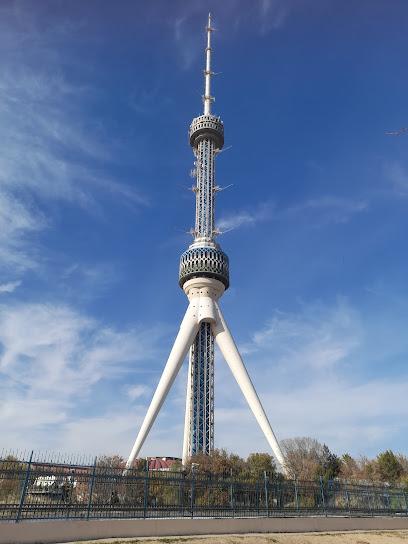
Tashkent Zoo
Explore Tashkent Zoo, a vibrant wildlife park showcasing diverse species in a beautifully designed environment perfect for families and nature lovers.
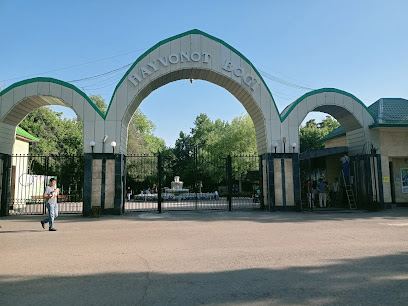
Anhor Lokomotiv
Experience the thrill of unique rides and family fun at Anhor Lokomotiv, Tashkent's premier amusement park and tourist attraction.
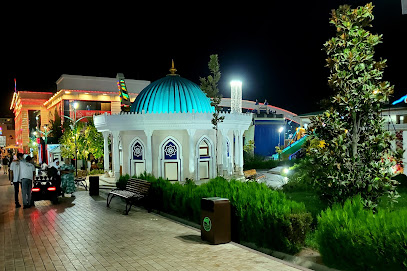
State Museum of the Temurids
Explore the grandeur of the Temurid dynasty at the State Museum of the Temurids in Tashkent, a cultural gem showcasing Uzbekistan's rich history.

Gafur Gulyam Recreation Park
Experience the joy of Gafur Gulyam Recreation Park in Tashkent, a family-friendly amusement park with affordable attractions and beautiful green spaces.
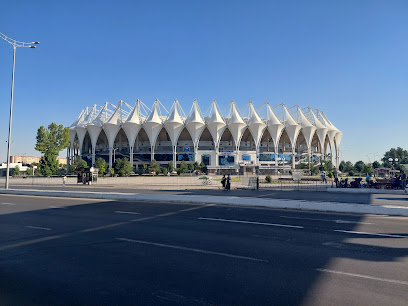
Museum of Applied Arts
Immerse yourself in the vivid world of Uzbekistan's artistic heritage at the Museum of Applied Arts, Tashkent.
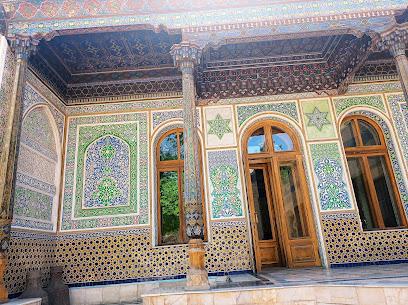
Tashkent Botanical Garden
Explore the lush beauty of Tashkent Botanical Garden, a vibrant oasis showcasing diverse flora and tranquil landscapes in the heart of Uzbekistan.
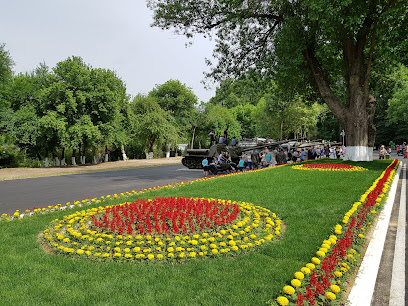
Memorial to the Victims of Repression in Tashkent
Explore the Memorial to the Victims of Repression in Tashkent, a serene park honoring resilience amid Uzbekistan's complex history.
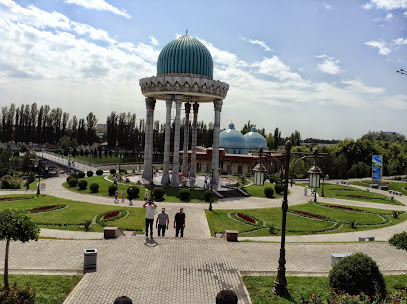
Eco Park
Explore Eco Park in Tashkent: a lush green haven offering relaxation, beauty, and fun for visitors of all ages.
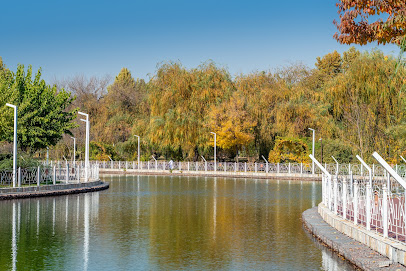
Alisher Navoiy Theater
Explore the Alisher Navoiy Theater in Tashkent - a stunning opera house showcasing Uzbekistan's rich cultural heritage and vibrant performing arts.
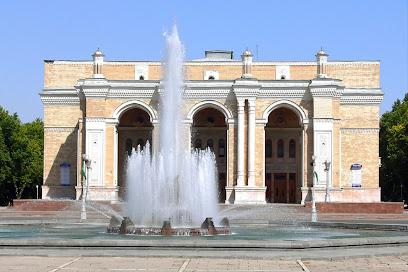
Central Park Tashkent
Explore Central Park Tashkent, a vibrant amusement park offering fun rides, beautiful gardens, and a delightful atmosphere in the heart of Uzbekistan's capital.
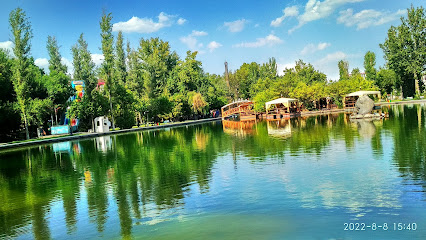
Essential places to dine
Afsona
Experience authentic Uzbek cuisine at Afsona in Tashkent - where tradition meets flavor in every dish.
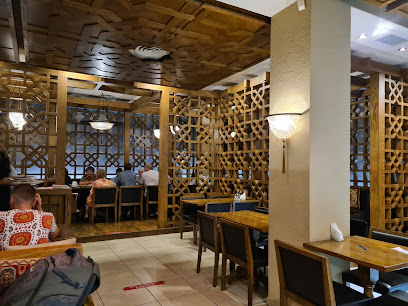
Caravan
Experience authentic Uzbek cuisine blended with international flavors at Caravan in Tashkent - perfect for families and friends alike.
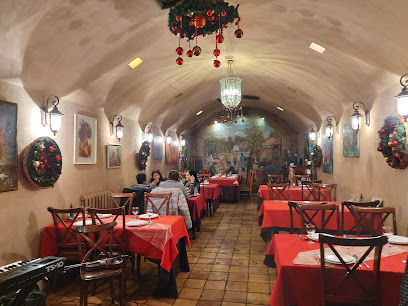
Qanotchi
Explore Qanotchi in Tashkent for an unforgettable meat dining experience featuring chicken wings and exquisite steaks.
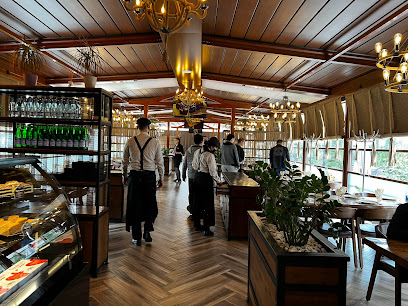
The Irish Pub & Restaurant
Discover authentic Irish hospitality blended with local flavors at The Irish Pub & Restaurant in Tashkent.
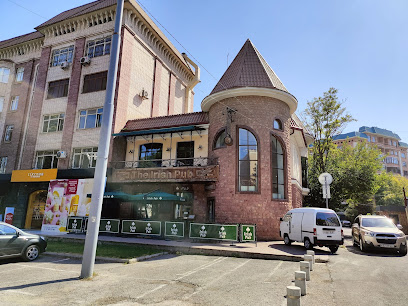
乌餐馆
Experience the best of Chinese and European cuisine at 乌餐馆 in Tashkent – where flavor meets tradition.
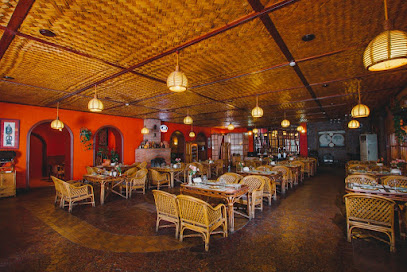
Navvat Lounge Bar
Discover the perfect fusion of Uzbek cuisine and traditional tea culture at Navvat Lounge Bar in Tashkent.
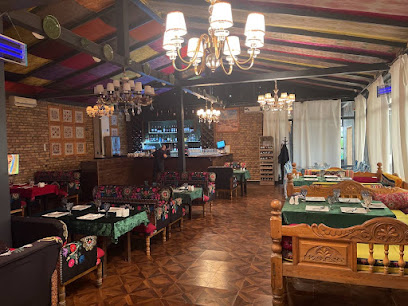
Syrovarnya
Discover authentic Italian flavors at Syrovarnya in Tashkent – where every dish tells a story.
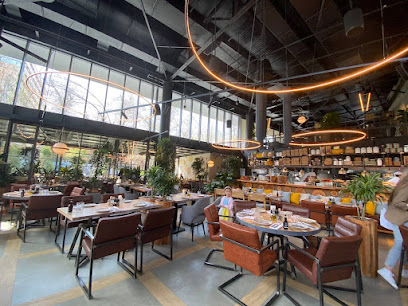
Khan Chapan
Savor the authentic taste of Uzbekistan at Khan Chapan - where tradition meets flavor in every dish.
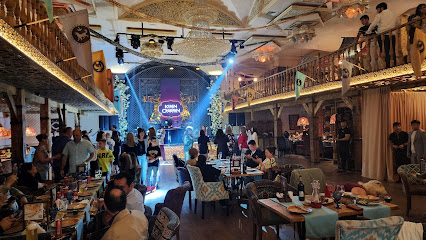
Gruzinskiy Dvorik
Experience authentic Georgian cuisine at Gruzinskiy Dvorik in Tashkent—where flavor meets tradition in every dish.
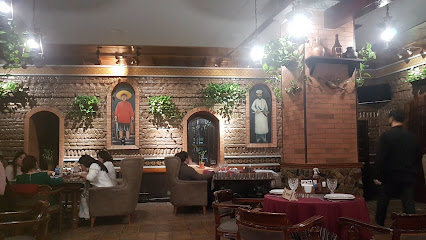
Cafe 1991
Discover authentic Uzbek flavors at Café 1991 in Tashkent - where tradition meets taste in a cozy atmosphere.
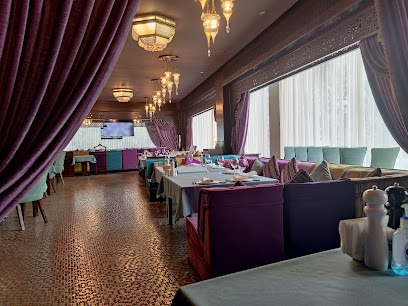
City Grill
Discover exquisite Italian cuisine and succulent steaks at City Grill, Tashkent's culinary haven where flavors meet tradition.
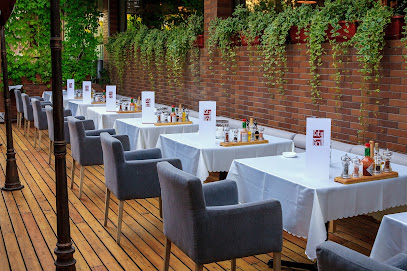
Soy Restaurant
Experience the best of Uzbek cuisine at Soy Restaurant in Tashkent - where tradition meets modernity in every dish.
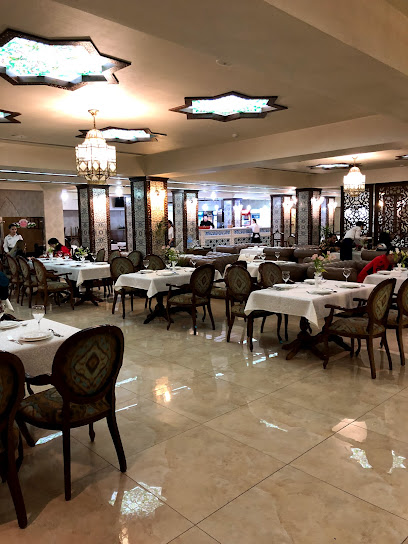
Basilic Restaurant
Experience exquisite Italian and Mediterranean cuisine at Basilic Restaurant in Tashkent - where every meal is a celebration of flavor.
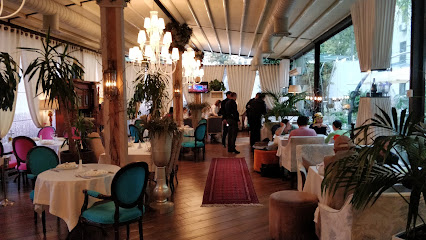
Osmanli
Experience authentic Turkish cuisine at Osmanli in Tashkent – where every dish tells a story.
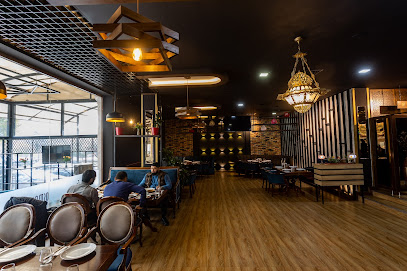
Assorti restaurant & sushi bar
Experience the fusion of Uzbek flavors and exquisite sushi at Assorti Restaurant & Sushi Bar in Tashkent.
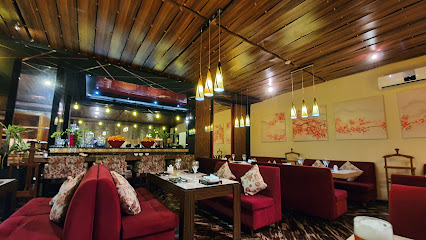
Markets, malls and hidden boutiques
Poytakht Shopping Center
Discover shopping, dining, and entertainment at Poytakht Shopping Center, Tashkent's vibrant hub for tourists and locals alike.
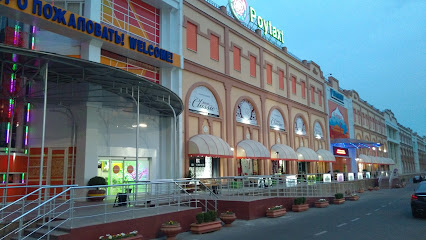
Toshkent
Experience the vibrant shopping scene in Tashkent's premier shopping mall, where modern retail meets local culture in a dynamic environment.
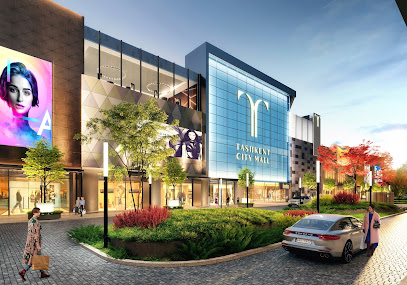
Central Department Store
Explore Central Department Store in Tashkent for a unique shopping experience blending local culture, diverse shops, and delicious cuisine.
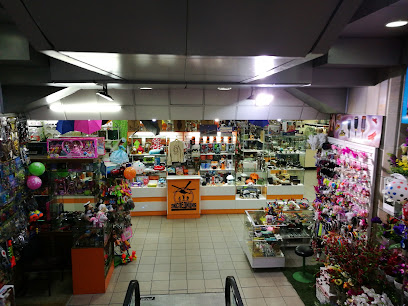
Mall “Vega”
Discover Mall 'Vega' in Tashkent - a bustling shopping mall offering diverse retail, dining, and entertainment experiences for all travelers.
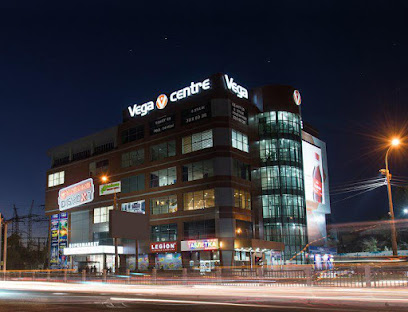
Samarqand Darvoza Mall
Discover a shopping paradise at Samarqand Darvoza Mall, where local charm meets international flair in Tashkent, Uzbekistan.
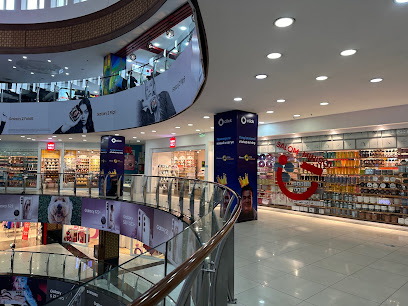
Human House
Explore Human House in Tashkent for unique Uzbek souvenirs and local crafts that embody the culture and artistry of Uzbekistan.
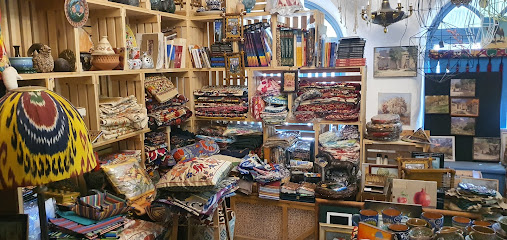
Urban Store
Explore Urban Store in Tashkent for a unique shopping experience filled with trendy fashion and local style.
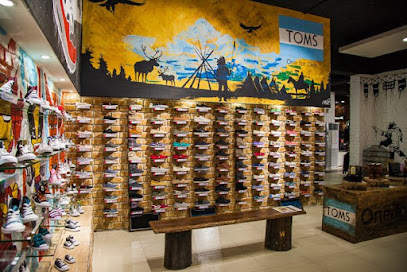
ART HOUSE
Explore ART HOUSE in Tashkent for unique handcrafted gifts and souvenirs that embody the essence of Uzbek culture and artistry.
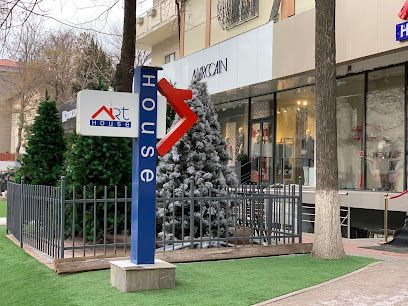
Glamour
Discover the latest fashion trends at Glamour Boutique in Tashkent, where style meets elegance in a chic shopping environment.
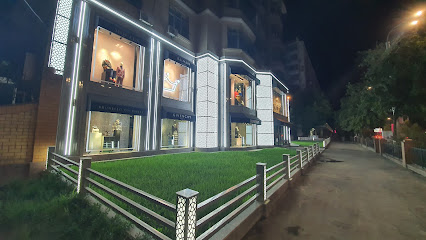
Miniso Samarqand Darvoza
Discover unique gifts and trendy home goods at Miniso Samarqand Darvoza in Tashkent, a must-visit shop for every traveler.
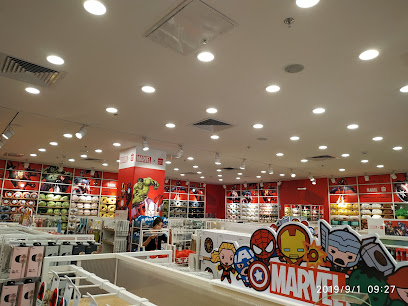
National Souvenirs
Experience the essence of Uzbekistan at the National Souvenirs market in Tashkent, where local crafts and culture come together in a vibrant shopping experience.
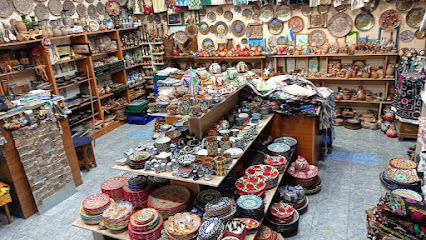
Chorsu Plaza
Discover the vibrant fashion scene at Chorsu Plaza, a premier clothing store in Tashkent, where local culture meets contemporary style.
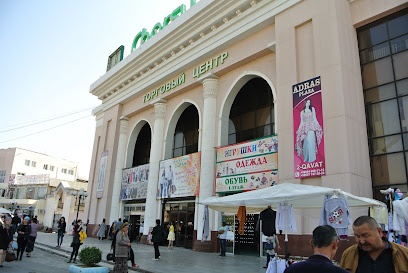
Magazin Chemodany Toshkent Savdo Markazi
Discover the heart of Tashkent shopping at Magazin Chemodany, where culture meets contemporary retail in Uzbekistan.
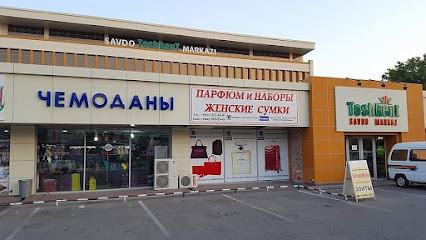
BIBI HANUM
Discover Bibi Hanum in Tashkent, a unique gift shop offering charming souvenirs, children’s clothing, and a taste of Uzbek artistry.
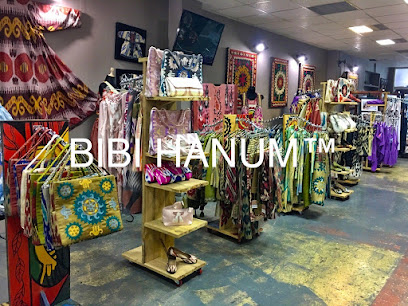
Super Centre
Explore the vibrant Super Centre in Tashkent, a shopping paradise featuring fashion, sportswear, and children's clothing for a fulfilling retail experience.
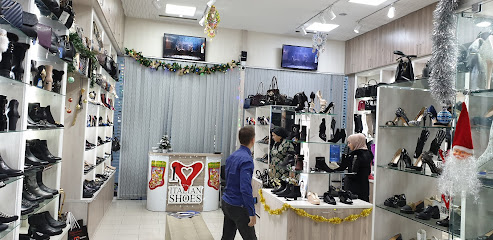
Essential bars & hidden hideouts
Steam Bar
Experience the enchanting atmosphere of Steam Bar in Tashkent, where history meets modern mixology for an unforgettable night out.
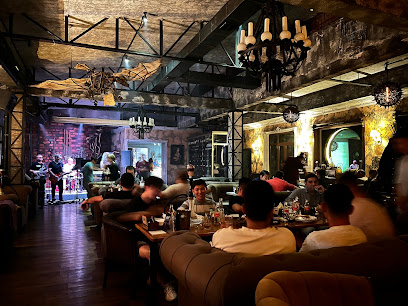
The Irish Pub & Restaurant
Discover the authentic taste of Ireland at The Irish Pub & Restaurant in Tashkent, where traditional cuisine meets a vibrant atmosphere.
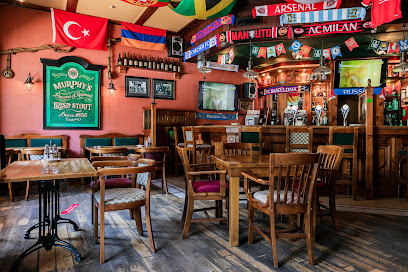
Жигули бар
Unwind at Жигули бар, Tashkent's lively hub for exquisite drinks, delicious meals, and an authentic hookah experience in a vibrant atmosphere.
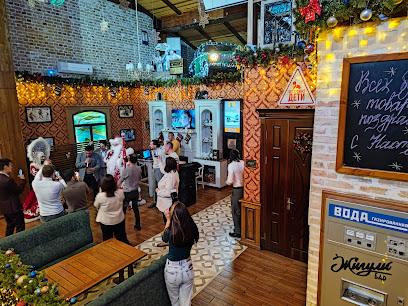
Silk 96 Wine&Lounge
Discover the finest wines and gourmet cuisine at Silk 96 Wine&Lounge in Tashkent, where elegance meets exceptional taste.
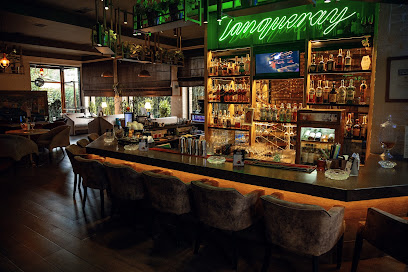
7 Fridays
Discover Tashkent's nightlife at 7 Fridays, where great drinks and an electric atmosphere await you.
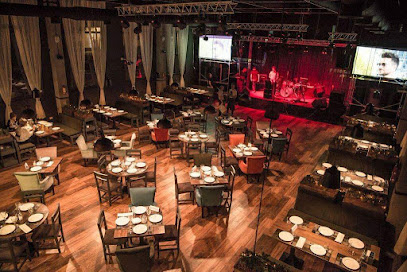
Guten Pub
Experience the vibrant nightlife of Tashkent at Guten Pub, where local flavors meet a lively atmosphere for an unforgettable evening.
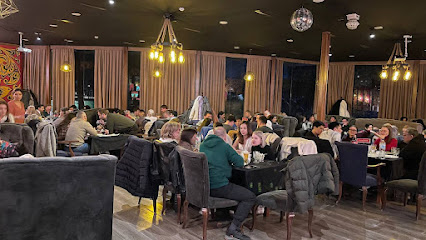
Chester British Pub
Discover the charm of Chester British Pub in Tashkent—authentic British cuisine, a vibrant atmosphere, and a welcoming community await you.
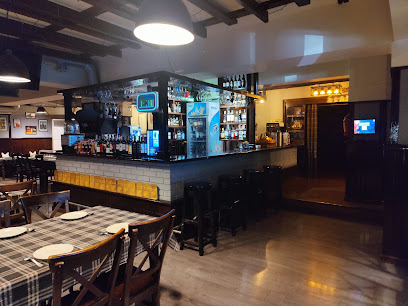
Куранты BAR
Discover the vibrant nightlife at Kuranty BAR, Tashkent's premier destination for local drinks and entertainment in a modern setting.
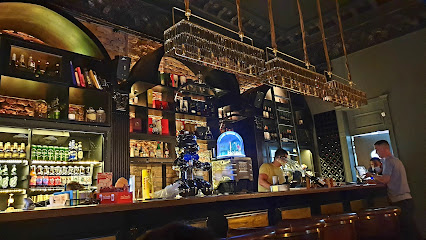
GENTLEMEN'S PUB
Discover the vibrant atmosphere of Gentlemen's Pub in Tashkent, where local flavors and a lively ambiance create the perfect evening out.
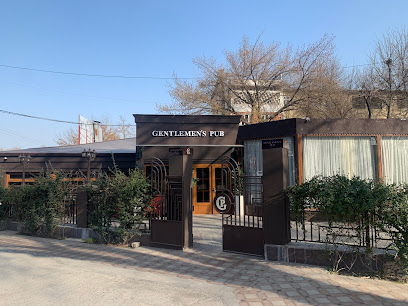
Ye Old Chelsea Arms
Discover the lively atmosphere of Ye Old Chelsea Arms, a top pub in Tashkent offering a delightful selection of drinks and local entertainment.
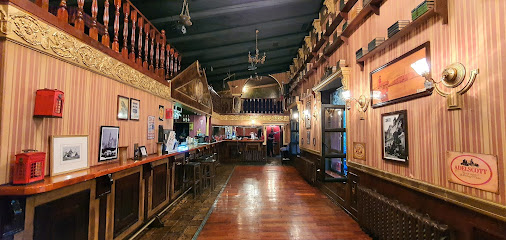
ONEMORE Wonder Bar
Discover Tashkent's vibrant nightlife at ONEMORE Wonder Bar, where great drinks and an electrifying atmosphere await every night.

Sette Restaurant & Bar
Discover the perfect blend of Italian cuisine and fine wines at Sette Restaurant & Bar in Tashkent's Hyatt Regency.
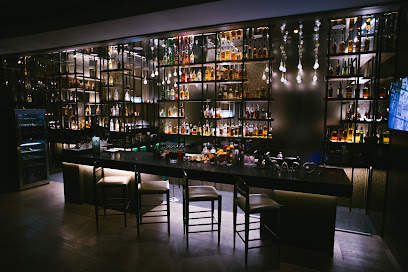
The WKND Bar
Discover the vibrant nightlife of Tashkent at The WKND Bar, where exceptional cocktails and delicious meals await in a lively atmosphere.
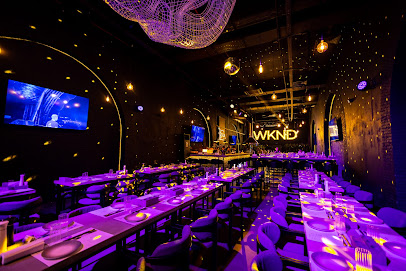
The Bar Speak Easy
Experience the vibrant nightlife of Tashkent at The Bar Speak Easy, where exquisite cocktails and live music create an unforgettable atmosphere.
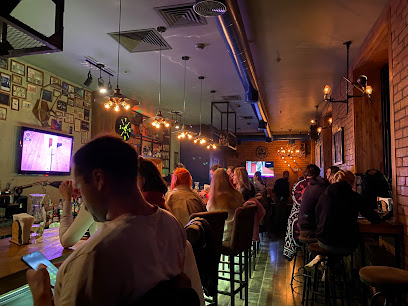
Local Phrases
-
- HelloSalom
[sah-lom] - GoodbyeXayr
[khayr] - YesHa
[ha] - NoYo'q
[yoq] - Please/You're welcomeIltimos
[il-tee-mos] - Thank youRahmat
[rah-maht] - Excuse me/SorryKechirasiz
[keh-chee-rah-siz] - How are you?Qalaysiz?
[kah-lay-siz] - Fine. And you?Yaxshi. Siz qandaysiz?
[yah-k-shee. siz kahn-day-siz] - Do you speak English?Siz inglizcha gapirasizmi?
[siz een-gleez-cha gah-pee-rah-siz-mi] - I don't understandTushunmadim
[too-shoon-mah-deem]
- HelloSalom
-
- I'd like to see the menu, pleaseMenyuni ko'rishni istayman
[mehn-yoo-nee koh-reesh-nee ees-tahy-mahn] - I don't eat meatGo'sht yemayman
[gohsht yeh-mahy-mahn] - Cheers!Salomatliklar!
[sah-loh-maht-leek-lahr] - I would like to pay, pleaseTo'lov qilmoqchiman
[toh-lohv keel-mohch-mahn]
- I'd like to see the menu, pleaseMenyuni ko'rishni istayman
-
- Help!Yordam!
[yor-dahm] - Go away!Uzil!
[oo-zil] - Call the Police!Politsiyani chaqiring!
[poh-lee-ts-ya-nee chah-keer-eeng] - Call a doctor!Doktorni chaqiring!
[dok-tohr-nee chah-keer-eeng] - I'm lostYo'qolganman
[yoq-ohl-gahn-mahn] - I'm illKasalman
[kah-sahl-mahn]
- Help!Yordam!
-
- I'd like to buy...Sotib olmoqchiman...
[soh-tee-bool-mohch-mahn] - I'm just lookingMen faqat ko'rsatmoqchiman
[mehn fah-kaht kohr-saht-mohch-mahn] - How much is it?Bu qancha?
[boo kahn-chah] - That's too expensiveBu juda qimmat
[boo joo-dah keem-maht] - Can you lower the price?Narxni pastga tushirishingiz mumkinmi?
[nahrkh-nee pahst-gah too-shee-ree-sheeng-eez moo-meen-mi]
- I'd like to buy...Sotib olmoqchiman...
-
- What time is it?Soat nechada?
[soh-aht ne-chah-dah] - It's one o'clockBir soat
[beer soh-aht] - Half past (10)O'n yarim
[ohn yah-reem] - MorningErtalab
[ehr-tah-lahb] - AfternoonTushlik
[toosh-leek] - EveningKech
[kehch] - YesterdayKecha
[keh-chah] - TodayBugun
[boo-goon] - TomorrowErtaga
[ehr-tah-gah] - 1Bir
[beer] - 2Ikki
[eek-kee] - 3Uch
[ooch] - 4To'rt
[toh-rt] - 5Besh
[behsh] - 6Olti
[ohl-tee] - 7Yetti
[yeh-tee] - 8Sakkiz
[sahk-keez] - 9To'qqiz
[toh-qqiz] - 10O'n
[ohn]
- What time is it?Soat nechada?
-
- Where's a/the...?...qayerda?
[kah-yehr-dah] - What's the address?Manzili qanday?
[mahn-zee-lee kahn-dahy] - Can you show me (on the map)?Menga ko'rsatishingiz mumkinmi?
[mehn-gah kohr-sah-teeshee-ngŏz moo-meeng-mee] - When's the next (bus)?Keyingi (avtobus) qachon?
[ke-yin-gee (ahv-toh-boos) kah-chohn] - A ticket (to ....)Bilet (.... ga)
[bee-let (gah)]
- Where's a/the...?...qayerda?
History of Tashkent
-
Tashkent, originally known as Chach, was a key location on the Silk Road, a network of trade routes connecting the East and West. Archaeological evidence suggests that the area has been inhabited since at least the 5th century BCE. This early settlement grew due to its strategic position and fertile lands.
-
During the 8th century, Tashkent fell under Arab control and became a significant center for Islamic culture and learning. The city flourished under the Abbasid Caliphate, and many mosques, madrasas, and libraries were established. It was during this period that the city earned its name, Tashkent, which means 'Stone City' in Turkic.
-
In the early 13th century, Tashkent was conquered by the Mongol Empire under Genghis Khan. The city was devastated, and its infrastructure was severely damaged. However, it eventually recovered and became part of the Chagatai Khanate, one of the four divisions of the Mongol Empire.
-
In the 14th century, Tashkent became part of the Timurid Empire under Timur (Tamerlane). This period marked a renaissance for the city, with significant architectural and cultural developments. The Timurid rulers invested heavily in constructing grandiose buildings, gardens, and educational institutions.
-
In the mid-19th century, Tashkent was annexed by the Russian Empire. The city became an administrative center and underwent extensive modernization. The construction of railroads and new infrastructure transformed Tashkent into a bustling metropolis. European architectural styles began to blend with traditional Uzbek designs.
-
After the Russian Revolution of 1917, Tashkent became part of the newly established Soviet Union. The city was designated as the capital of the Uzbek Soviet Socialist Republic. During this period, Tashkent saw rapid industrialization and urban development. The city also played a crucial role during World War II, serving as a major evacuation center and industrial hub.
-
Following the dissolution of the Soviet Union in 1991, Tashkent became the capital of independent Uzbekistan. The city has since undergone significant transformations, with new developments in infrastructure, culture, and tourism. Modern Tashkent is a vibrant city that harmoniously blends its rich historical heritage with contemporary advancements.
Tashkent Essentials
-
Tashkent is well-connected internationally and domestically. The primary entry point is Tashkent International Airport (TAS), which offers direct flights from major cities across Europe, Asia, and the Middle East. National carriers like Uzbekistan Airways operate regular flights, and several international airlines also service the route. Once at the airport, you can take a taxi or use ride-sharing services to reach the city center, which is approximately 7 kilometers away.
-
Tashkent has a well-developed public transportation system, including buses, trams, and a metro system that is both affordable and efficient. The Tashkent Metro is not only a convenient mode of transport but also an architectural marvel, with beautifully decorated stations. Taxis are plentiful and relatively inexpensive; however, ensure to negotiate or use a metered taxi to avoid being overcharged. For more flexibility, ride-sharing apps like Yandex and MyTaxi are popular and reliable.
-
The official currency in Uzbekistan is the Uzbekistani Som (UZS). It is recommended to carry cash as many smaller shops and markets do not accept credit cards. Major hotels, restaurants, and some larger stores accept credit cards. ATMs are widely available in Tashkent, but it is advisable to withdraw cash in advance, especially if planning to visit rural areas. Currency exchange services are available at the airport, banks, and authorized exchange offices.
-
Tashkent is generally a safe city for tourists, but standard precautions should be taken. Avoid walking alone at night in less populated areas and be cautious in crowded places to guard against pickpocketing. Areas like the Chorsu Bazaar can be crowded, so keep an eye on your belongings. It is advisable to avoid the outskirts of the city late at night. Always use reputable taxi services and avoid sharing personal information with strangers.
-
In case of an emergency, the general emergency number is 112. Police can be reached at 102, and medical emergencies can be reported by dialing 103. Major hospitals and clinics in Tashkent are equipped to handle emergencies, and many staff members speak English. It is highly recommended to have travel insurance that covers medical emergencies. Pharmacies are available throughout the city for minor health issues, but it is a good idea to carry basic medications.
-
Fashion: Do dress conservatively, especially when visiting religious sites. Avoid overly revealing clothing. Religion: Do respect local customs and traditions. When visiting mosques, women should cover their heads and everyone should remove their shoes. Public Transport: Do be respectful and offer your seat to elderly passengers. Don't eat or drink on public transport. Greetings: Do greet people with a firm handshake and a smile. A slight nod of the head is also a sign of respect. Eating & Drinking: Do try local dishes and accept food offerings graciously. Don’t refuse hospitality, as it is considered impolite.
-
To experience Tashkent like a local, visit the Chorsu Bazaar, one of the oldest and largest markets in the city, offering a vibrant array of fresh produce, spices, and traditional goods. Engage with locals; Uzbek people are known for their hospitality and friendliness. Don’t miss taking a leisurely stroll through the beautiful Amir Timur Square or exploring the Tashkent Metro stations, which are adorned with unique Soviet-era art. For a taste of local culture, attend a performance at the Alisher Navoi Opera and Ballet Theatre.
Trending Landmark in Tashkent
-
Chorsu Bazaar
-
Amir Temur Square
-
Hazrati Imam complex
-
Minor Mosque
-
Tashkent City Park
-
Tashkent Television Tower
-
State Museum of the Temurids
-
Abdulla Murodxo'jayev 17a
-
Tashkent Botanical Garden
-
Memorial to the Victims of Repression in Tashkent
-
State Museum of the History of Uzbekistan
-
Monument of Courage
-
Mirzo-Yusuf Mosque
-
Navruz Park
-
Hoja Ahror Valiy Mosque
Nearby Cities to Tashkent
-
Things To Do in Chirchiq
-
Things To Do in Angren
-
Things To Do in Shymkent
-
Things To Do in Khujand
-
Things To Do in Istaravshan
-
Things To Do in Djizak
-
Things To Do in Jizzakh
-
Things To Do in Namangan
-
Things To Do in Turkestan
-
Things To Do in Panjakent
-
Things To Do in Andijan
-
Things To Do in Samarkand
-
Things To Do in Vahdat
-
Things To Do in Dushanbe
-
Things To Do in Osh

















